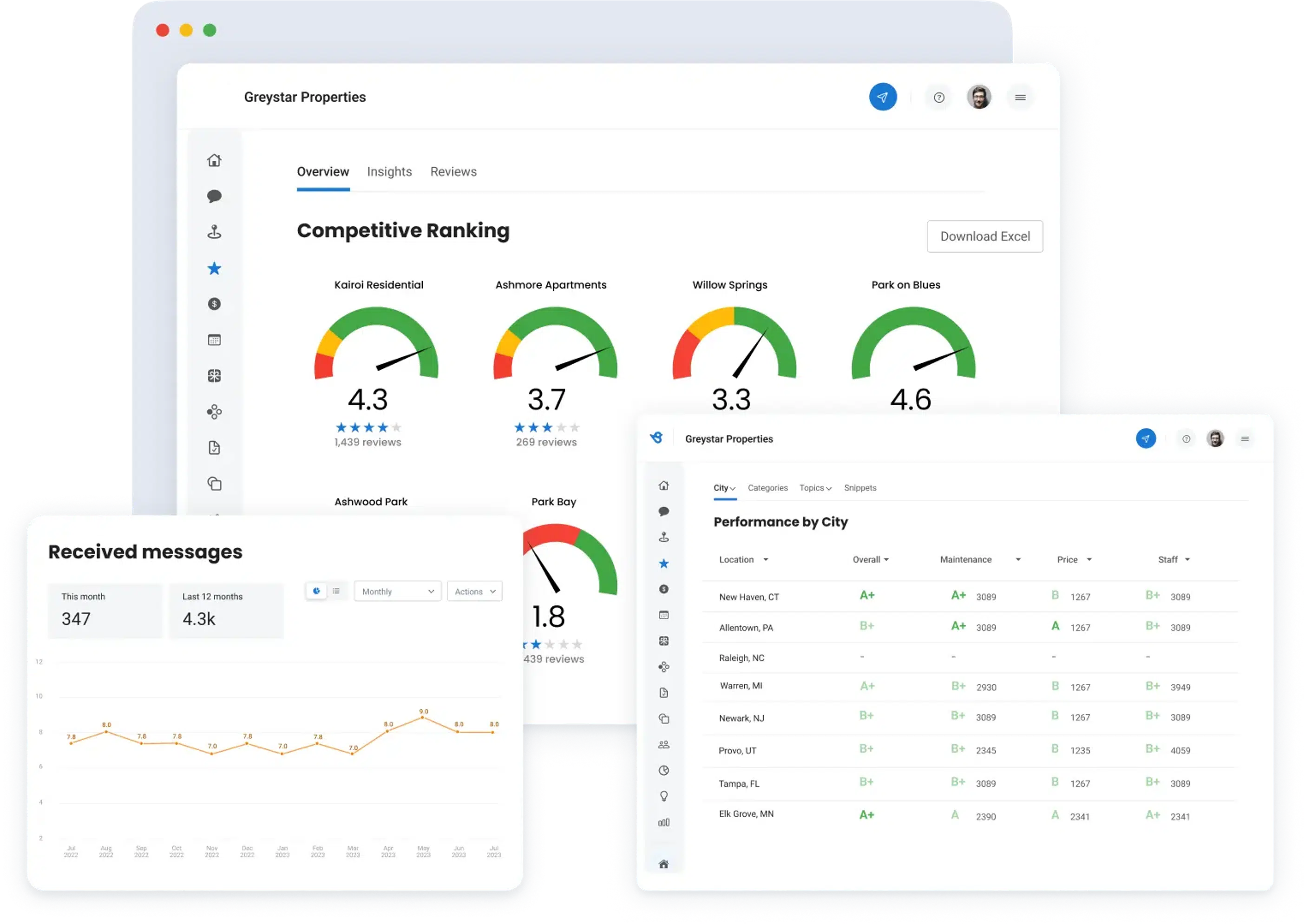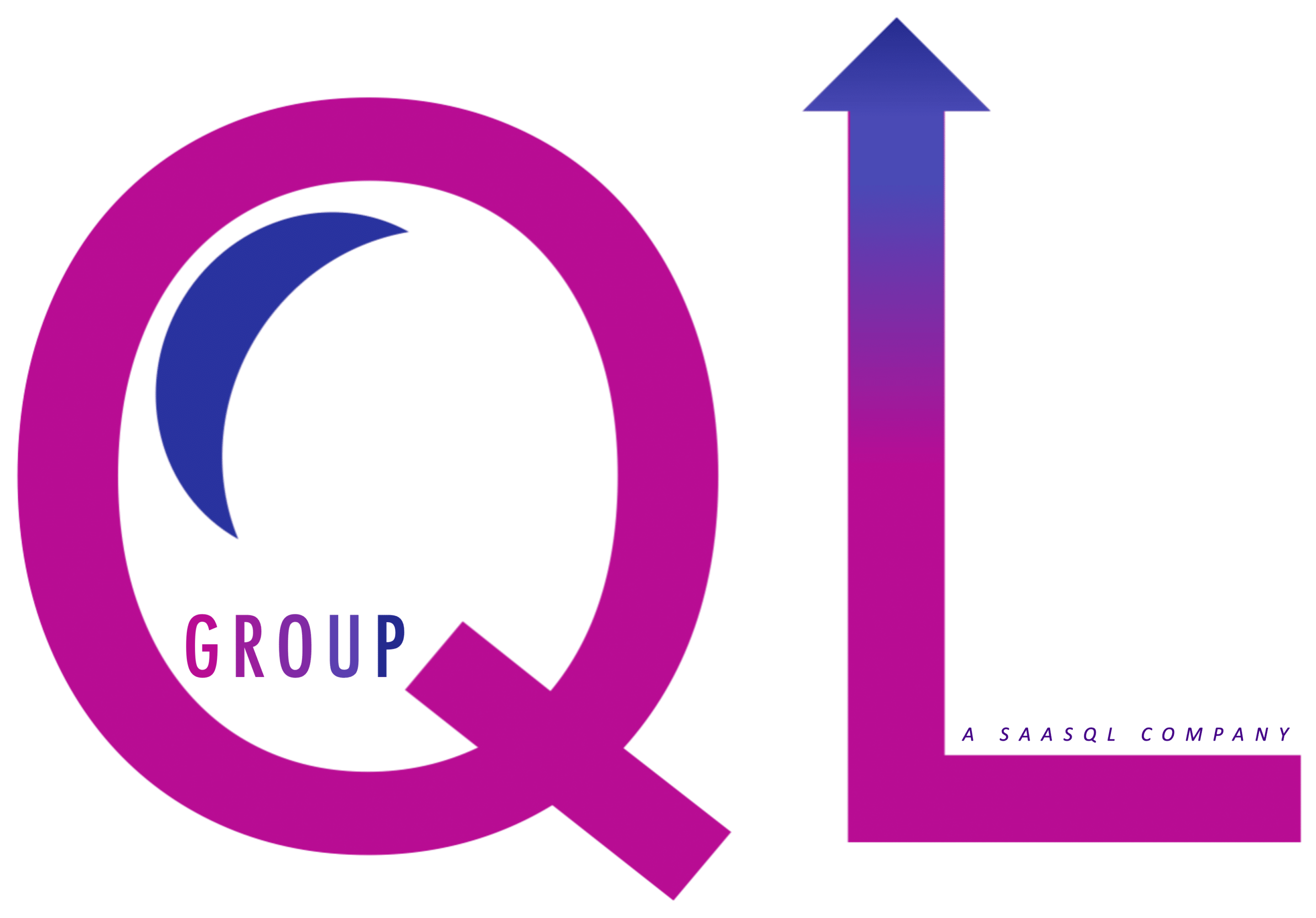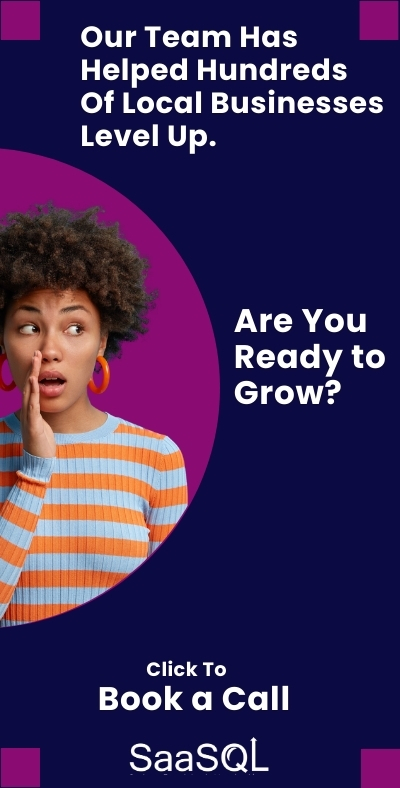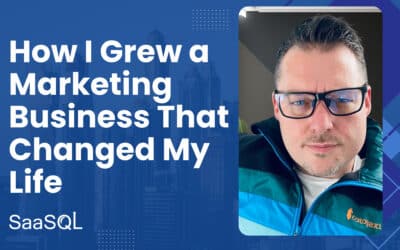Why do so many freelancers feel stuck—no matter how talented they are?
From freelancer to founder—for many people who’ve deployed their individual expertise into a lucrative side-hustle, there remains one persistent question: what has to change in order to stop selling time and start getting paid for the infrastructure you design, own, and scale?
Freelancers are some of the most skilled professionals in the marketing industry. They juggle clients, campaigns, platforms, and deadlines. They know how to deliver. But the truth is, talent alone doesn’t create stability. And it definitely doesn’t create freedom.

What starts as flexibility often turns into fragmentation. Projects end. Clients ghost. Payments lag. The very thing that attracted so many to freelancing—control over time and income—can quickly become a source of stress. When every month starts at zero, even a good month doesn’t feel safe.
It’s not a work ethic problem. It’s a model problem. Trading time for money is fundamentally limited. It puts a cap on how much you can earn, how many clients you can serve, and how far your business can grow.
And yet, more and more freelancers are breaking that ceiling. They’re shifting from short-term gigs to long-term growth. They’re not scaling their time, they’re scaling systems. And the difference is profound.
That’s the freelancer to founder transition.
It’s not about changing who you are. It’s about changing what your business does for you.
What’s the difference between a freelancer and a founder?
“If your business still relies on chasing one-off sales, you’re stuck in survival mode!”
— Mike Sirius, Business Strategist
At first glance, they might look the same. Both work with clients. Both offer marketing services. Both chase results. But beneath the surface, the mindset and mechanics are wildly different.
Freelancers sell their time. Founders sell outcomes.
A freelancer’s business stops when they do. Their income is directly tied to their availability. That means no time off, no scale, no ceiling to push against. Founders, on the other hand, package solutions. They sell results. Whether it’s leads, conversions, or retention—what they offer has structure, price, and repeatability.
Founders build systems. Freelancers build schedules.
Freelancers work inside their business. Founders work on it. That shift—from executer to architect—opens up the possibility for automation, delegation, and predictable revenue. Founders don’t need to be in the room for the work to get done.
Founders earn leverage. Freelancers earn limits.
With every client, freelancers add more work. Founders add more value. They use tools, teams, and tech to deliver bigger results without adding more hours. It’s not hustle. It’s leverage.
The difference isn’t philosophical. It’s practical. Freelancers can absolutely become founders. The key is letting go of the hustle loop and embracing the systems that make growth possible.
How is AI transforming marketing services (and lowering the barrier to scale)?
AI has shifted from a productivity booster to a business model driver. For marketers building beyond freelance, that shift is everything.
You’re no longer using AI to get things done faster. You’re using it to architect autonomous service infrastructure:
- Always-on lead gen pipelines that score and route prospects
- Machine learning systems that optimize media buys in real time
- Predictive campaign builders that adapt to behavior before clients notice
Freelancers once wore all the hats. AI lets you replace the hats with code. From strategy to fulfillment, you’re engineering self-evolving systems.
Even more critical: AI changes your perceived value. You stop being the hands that do the work, and become the architect of an intelligent engine that runs it. Clients don’t hire you to execute. They hire you to deploy systems they could never build alone.
That’s not support. That’s infrastructure. And infrastructure gets retained.
What does it take to turn one-off services into recurring revenue?
Freelancers usually price by the hour or by the project. But those models rarely create stability—or scalability. To build predictable income, the focus has to shift from one-time deliverables to embedded systems that clients rely on.
“Recurring revenue refers to the stream of predictable and consistent income that an organization generates from ongoing customer relationships.”
— ScalePad Blog
Let’s go beyond retainers and into real leverage:
Deploy AI-Powered Microservices That Self-Renew
Think beyond deliverables. Start embedding autonomous systems that deliver ongoing value with or without you. Examples:
- AI-driven reputation engines that respond to reviews and post social proof.
- Chat-based lead qualifiers that sync with CRM and trigger workflows.
- Smart content scheduling that optimizes based on performance data.
These aren’t just tools—they’re infrastructure. The more they run, the more indispensable you become.
“Recurring revenue refers to the stream of predictable and consistent income that an organization generates from ongoing customer relationships.”
— ScalePad Blog
Make the Dashboard the Product
Turn your reporting portal into a strategic control center. Include:
- “Next Best Move” insights powered by predictive AI.
- Benchmark comparisons against local or industry peers.
- ROI simulations: forecast what scaling results might look like.
If they rely on your dashboard to make decisions, they won’t cancel the relationship.
Embed Yourself into Their Ops
Design services that integrate so tightly into your client’s workflow that removing you means breaking their business. Tactics include:
- Owning the automations that move leads through their pipeline.
- Managing ad budgets through shared platforms or co-controlled interfaces.
- Housing CRM logic, segmentation, or lifecycle journeys inside your systems.
The more you control the system, the harder you are to replace.
License Your Methodology, Not Just Your Time
Package your unique approach—campaign structures, onboarding playbooks, prompt libraries—as branded intellectual property. Offer access, not just effort:
- Let clients or partners use your system to scale in new territories.
- Provide white-labeled versions of your templates and tools.
- Offer training portals or community access as part of your offer.
Recurring revenue isn’t just about billing monthly. It’s about becoming foundational. When your services become part of how a business operates, your revenue doesn’t just recur—it compounds.
Can you really build an agency from scratch—without going it alone?
It used to be that building an agency meant hiring staff, leasing office space, and managing operations across ten different platforms. Now? You can launch from your laptop.
But doing it alone is still the fastest path to burnout. That’s where the model shifts.
Start with clarity. What niche do you serve? What outcome do you promise? What makes your approach different? Freelancers who nail this positioning early grow faster and attract better-fit clients.
Next, assemble your stack. Not just the AI tools—but the support system around them. From CRMs and chatbots to automated reporting and appointment scheduling, the right stack does more than deliver services. It delivers a client experience.
Still, the real differentiator? Strategic support. When you have sales engineers, media buyers, and fulfillment partners behind the scenes, you’re no longer selling time. You’re selling solutions. And clients can feel the difference.
So yes, you can absolutely start an agency from scratch. But you shouldn’t start one alone. Not if you want to build something that lasts.
What is the fastest way to scale as a new founder?
Most freelancers don’t struggle due to lack of skill—they struggle because building real infrastructure solo is slow, risky, and resource-intensive. Designing systems, managing fulfillment, sourcing leads, handling sales—it’s a lot to carry alone.
That’s why the smartest path forward often isn’t building from scratch. It’s plugging into a strategic partner that already has what you need: a tech stack, support team, operating model, and roadmap.
When that foundation is already built, you don’t waste time rebuilding it. You spend your time closing deals, delivering results, and growing intelligently.
Whether it’s for fulfillment, client success, campaign execution, or training, strategic partnerships help freelancers make the jump to founder without reinventing every wheel.
QL Group is one such example. It equips experienced marketers with a complete, prebuilt agency model—sales engineers, media buyers, performance systems, even protected territories—so you can skip the grind and step straight into scalable agency ownership.
You bring the expertise. They provide the engine.
What’s the first step if you’re serious about going from freelancer to founder?
Start with a question: are you building income, or building equity?
Most freelancers are locked in a cycle of delivery. They produce, invoice, repeat. It pays the bills, but it rarely creates momentum. Founders, on the other hand, make decisions that compound. They invest in systems, brand, infrastructure, and growth.
You don’t need a bigger network or a better portfolio to make the shift. You need a mindset that treats your work like a business, not a series of gigs.
The first step? Stop trying to scale your effort. Start scaling your impact. Look at the tools, the support, the opportunities that let you deliver results consistently, even when you’re not working.
Thousands of talented marketers are making the leap right now. Not because it’s easy, but because they’re done staying small. The only real question is: are you building something that will still be standing a year from now?
If not, it might be time to stop freelancing your future.
Recap: Frequently Asked Questions
What does it mean to go from freelancer to founder?
Going from freelancer to founder means shifting from selling your time to building and owning scalable systems. It involves creating repeatable, AI-driven infrastructure that delivers consistent results and generates recurring revenue.
How can freelancers create recurring revenue instead of one-off projects?
Freelancers can build recurring revenue by productizing services, embedding AI-powered microservices, creating client dashboards that deliver monthly value, and licensing their proprietary methods or frameworks.
What are AI-powered microservices in a freelance business?
These are small, automated systems—like lead scoring bots, review generators, or content optimizers—that continue to deliver value without manual effort. They operate independently, helping freelancers scale without burning out.
Why is a client dashboard important for retention?
A well-designed dashboard becomes the product. It shows real-time value, predicts next steps, and provides insight clients can’t get elsewhere—making the freelancer indispensable.
Can freelancers scale faster by partnering with other organizations?
Yes. Strategic partnerships let freelancers plug into existing infrastructure—tech, teams, and fulfillment—so they can focus on growth instead of building from scratch.
What kind of organizations offer this kind of infrastructure for freelancers?
Entities like QL Group offer a turnkey agency model with sales support, fulfillment teams, and protected territories. It helps experienced freelancers make the leap to ownership with speed and confidence.
Additional Resources
“The Art of Recurring Revenue: Lessons from Scaling a 5,500-Employee Business”
Mike Sirius shares how licensing frameworks, not services, transformed his growth trajectory.
https://msirius.medium.com/the-art-of-recurring-revenue-lessons-from-scaling-a-5-500-employee-business-bfa5cbff31be
“Recurring Revenue Models: Why Your Clients Should Be Paying You Monthly”
SaaSOptics outlines the mechanics of recurring models and why businesses that adopt them outperform peers.
https://www.saasoptics.com/blog/recurring-revenue-models
“Why Every Freelancer Should Build a Scalable System—Not Just a Client Roster”
A tactical breakdown from the Indie Hackers community on turning services into scalable infrastructure.
https://www.indiehackers.com/post/why-every-freelancer-should-build-a-scalable-system-63f021c2a







